3 Reasons Why Henna Isn’t Recommended for Natural Hair
As licensed cosmetologists + tight curl educators, we’ve noticed that henna has many members of the natural hair community in a chokehold. Henna does not lead to healthy natural hair, as it often leads to more damage than good. This blog post will explain 3 reasons why we do not recommend henna for natural hair.
What Is Henna?
Henna (Lawsonia inermis) is a flowering plant and the sole species of the Lawsonia genus. The name henna also refers to the dye prepared from the plant and the art of temporary body art (staining) based on those dyes (see also mehndi). Henna has been used since antiquity to dye skin, hair and fingernails, as well as fabrics including silk, wool and leather. The name is used in other skin and hair dyes, such as black henna and neutral henna, neither of which is derived from the henna plant.
Henna dye is always red and is a permanent stain on the hair. It can be mixed with other natural pigments like indigo to create darker colors and cassia obovata to create lighter colors. Unless the henna is body art quality (BAQ), it likely contains additives that can be natural or manmade. Any henna claiming to lighten the hair is not a “natural product” and likely contains metallic salts, which when exposed to commercial coloring products can react negatively and dissolve hair.
So, why doesn’t Black Girl Curls recommend the use of henna?
Reason #1: Henna Causes Natural Hair to Become Very Dry & Brittle
Henna is not recommended by many salon professionals for its propensity to behave as molecular bricks on hair. For hair that is of medium to low porosity, this can cause brittle and dry hair.
Reason #2: Henna Can Make Professional Color Services Difficult
Due to its powerful staining properties, henna can make a color correction going lighter or darker very difficult to achieve, while maintaining the integrity of the hair.
Hair integrity refers to the overall health and condition. If you have had Henna previously done on your hair, please ensure that you’re honest with your colorist during your consultation.
Reason #3: Henna Makes the Hair Difficult to Absorb Water & Products
Henna coats the hair and can interfere with the absorption of water + conditioning products. Use henna with an abundance of caution and the knowledge that if you desire to change your hair color, you may have to wait to grow the hair out or cut it off.
Our professional opinion is to star far away from henna. We have yet to encounter a client in person or digitally that had henna and wasn’t experiencing the hardening and drying effects of it. Yes, the hair can be deep conditioned into some level of pliability, but why not avoid the problem altogether instead of working to fix it?
Don’t believe us? The receipts don’t lie!
Want more professional hair tips like this? We cover all the natural hair care fundamentals in our digital consumer education platform, The SeeSomeCurls Visual Library.
Our 1.1K+ community of tight curl + naturals are shaving more than 50% of time off their wash day, being showered left and right with hair compliments, and are receiving direct support of a very encouraging community of tight curlies + naturals who have been exactly where you are.





